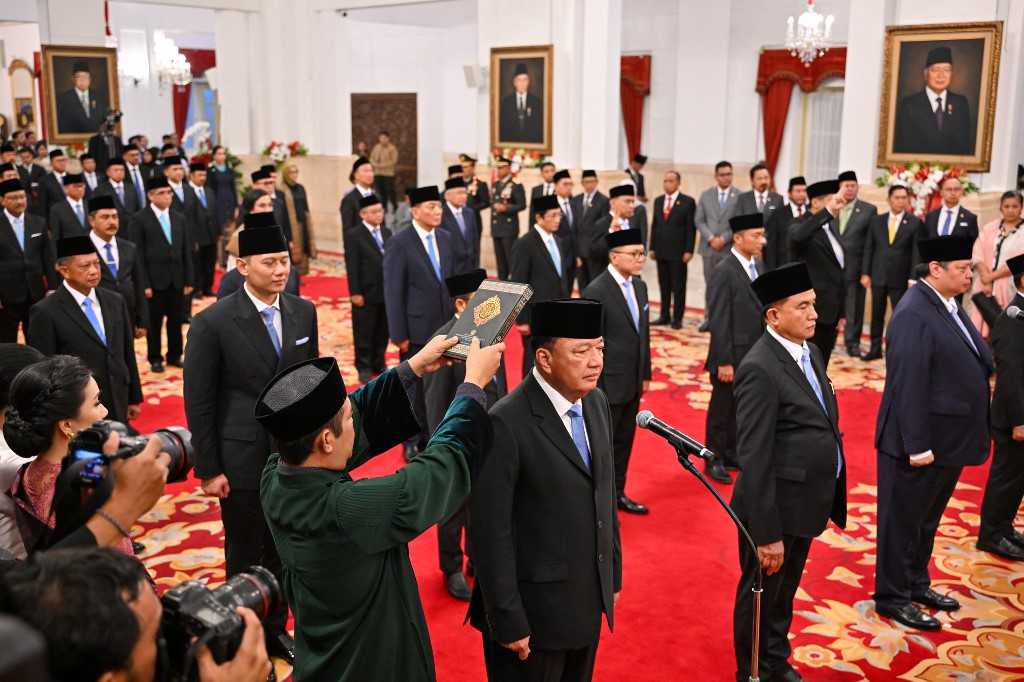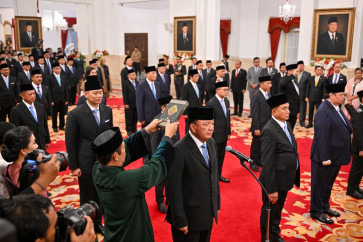Popular Reads
Top Results
Can't find what you're looking for?
View all search resultsPopular Reads
Top Results
Can't find what you're looking for?
View all search resultsPrabowo’s bloated cabinet: Beware of political ‘cholesterol’
The expansion in cabinet size has not been paralleled by improvements in governance outcomes. According to World Bank data, Indonesia's regulatory quality score stood at 59.43 in 2022, reflecting a decline from 61 in 2021.
Change text size
Gift Premium Articles
to Anyone
N
ewly inaugurated President Prabowo Subianto has announced his Red and White Cabinet lineup, which includes 48 ministers, 56 deputy ministers and a number of government agency heads.
Amid the excitement, there are growing concerns about the size of his cabinet. Prabowo’s decision to expand the number of ministries and create new agencies has been met with enthusiastic support from his political allies, many of whom are eager to secure influential roles in his administration.
The cabinet expansion was made possible after the House of Representatives removed restrictions on the number of ministries a president can form. Initially, the law limited the president to maintaining no more than 34 ministries or agencies. However, with the enactment of Law No. 61/2024, this cap has been lifted, granting the president unrestricted authority to expand the cabinet as he or she sees fit.
This legislative change could have far-reaching consequences, casting a shadow over Indonesia's future by paving the way for an overgrown and inefficient bureaucracy that struggles under the weight of its own expansion.
Drawing on Weber’s theory, it becomes clear why this expansion poses such a significant threat. Weber argued that bureaucracy functioned best when its hierarchy and roles were clearly defined, acting as a finely-tuned mechanism of governance.
Without this structure, bureaucracy risks becoming a bloated, unwieldy machine, a ticking time bomb ready to implode, transforming from a tool of order into a destructive force that cripples organizational performance from the inside out. It's akin to cholesterol in the body: essential in standard amounts, but deadly when it accumulates unchecked.
In a fat cabinet, the risk of inefficiency grows ever more insidious, like a silent threat seeping through the veins of governance. This inefficiency erodes the system's ability to function effectively, amplifying institutional weaknesses that undermine the government’s core objectives.



















